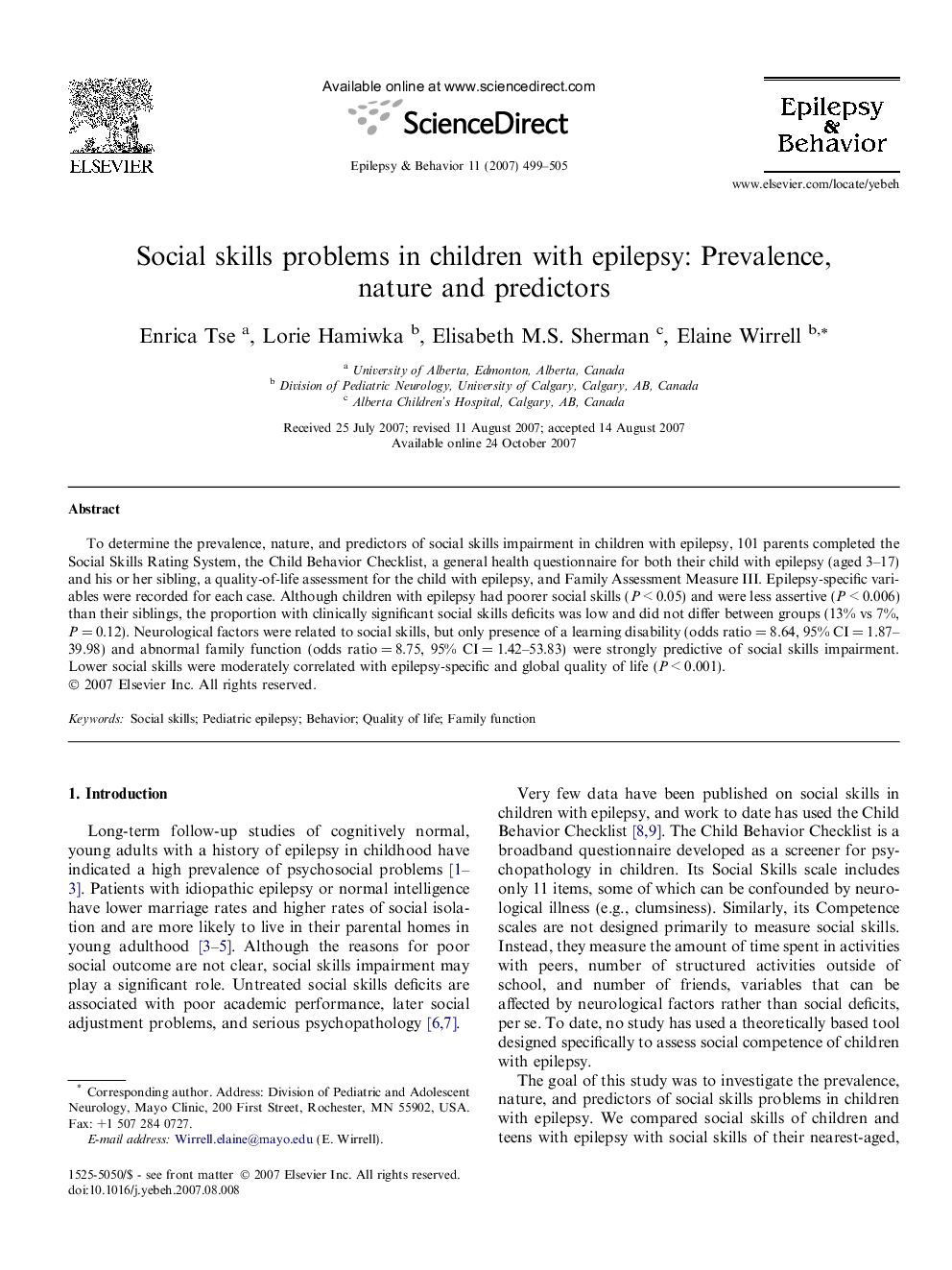| Article ID | Journal | Published Year | Pages | File Type |
|---|---|---|---|---|
| 3050617 | Epilepsy & Behavior | 2007 | 7 Pages |
To determine the prevalence, nature, and predictors of social skills impairment in children with epilepsy, 101 parents completed the Social Skills Rating System, the Child Behavior Checklist, a general health questionnaire for both their child with epilepsy (aged 3–17) and his or her sibling, a quality-of-life assessment for the child with epilepsy, and Family Assessment Measure III. Epilepsy-specific variables were recorded for each case. Although children with epilepsy had poorer social skills (P < 0.05) and were less assertive (P < 0.006) than their siblings, the proportion with clinically significant social skills deficits was low and did not differ between groups (13% vs 7%, P = 0.12). Neurological factors were related to social skills, but only presence of a learning disability (odds ratio = 8.64, 95% CI = 1.87–39.98) and abnormal family function (odds ratio = 8.75, 95% CI = 1.42–53.83) were strongly predictive of social skills impairment. Lower social skills were moderately correlated with epilepsy-specific and global quality of life (P < 0.001).
